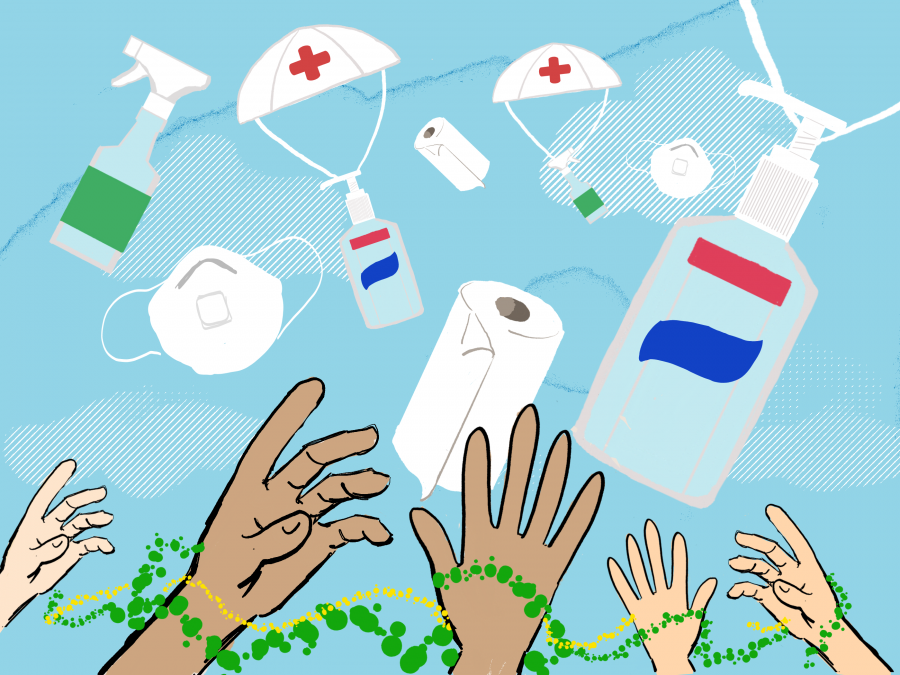Residence halls can’t keep up with COVID-19
September 16, 2020
While colleges all over the nation provide free disinfecting wipes, refillable bottles of hand sanitizer and even antimicrobial pillows to their students, UT has done nothing to ensure that Longhorns living on campus are able to keep their dorm rooms clean.
To combat recent spikes in COVID-19 cases on and around the Forty Acres, the University must regularly provide essential cleaning products –– alcohol wipes, disinfectant spray and reusable hand sanitizer containers –– to on-campus residents.
So far, 11 students who live on campus were reported to have tested positive for COVID-19. One of them stays in Jester Residence Hall.
“It’s definitely scary knowing there is a possibility I could have come in contact with them,” said Isha Chhabra, neuroscience freshman and Jester East resident.
Equally frightening is UT’s insufficient cleaning protocols. Currently, UHD is only enforcing infection control measures in communal spaces.
“Our facility staff is taking precautions to ensure that all high-touch areas, such as door handles, faucet handles, flush handles, elevators, drinking fountains, are all disinfected a minimum of three times daily,” said Justin Samuel, assistant director for residence life. “All other areas like tabletops (and) furniture are disinfected a minimum of two times every single day.”
Sanitizing public areas is clearly not enough. Even with these protocols in place, the presence of COVID-19 in dorms is growing. This alarming trend will likely continue if UT does not boost its disease-prevention efforts, especially in the places where students spend most of their time: dorm rooms.
Issuing free cleaning supplies to residents would encourage them to disinfect their living spaces and diminish their chances of contracting and spreading COVID-19.
UT currently falls short of the CDC’s Considerations for Institutions of Higher Education, which states that college campuses should provide “adequate supplies, including soap (and) hand sanitizer containing at least 60% alcohol, paper towels, tissues, disinfectant wipes, masks (as feasible) and no-touch/foot pedal trash cans.”
Chhabra believes such a policy could significantly help on-campus residents maintain hygienic living spaces.
“If students were provided free cleaning supplies, they would be more inclined to use them because some people don’t put in the effort to go and get them,” Chhabra said.
Additionally, practicing good hygiene during the COVID-19 pandemic may pose a significant financial burden to some residents. For this reason, refusing to provide cleaning supplies in dorms is inherently discriminatory, as students unable to afford these products may face higher rates of exposure to COVID-19. This avoidable health disparity is unacceptable. UT must ensure that within its residence halls, hygiene is a right, not a privilege.
So why hasn’t UT provided their students with cleaning supplies?
Samuel said if students expressed a need for sanitizing products, UHD would most likely provide them.
“That’s not a request students have put forth as of yet,” Samuel said. “We, I’m sure, would consider that as a request from the resident assistants or residents.”
However, students shouldn’t have to request that UT follow basic CDC guidelines. To slow the spread of COVID-19, it is key that we all hold each other mutually accountable.
Students are responsible for social distancing and maintaining good personal hygiene. The University is responsible for providing them with the resources to do so.











